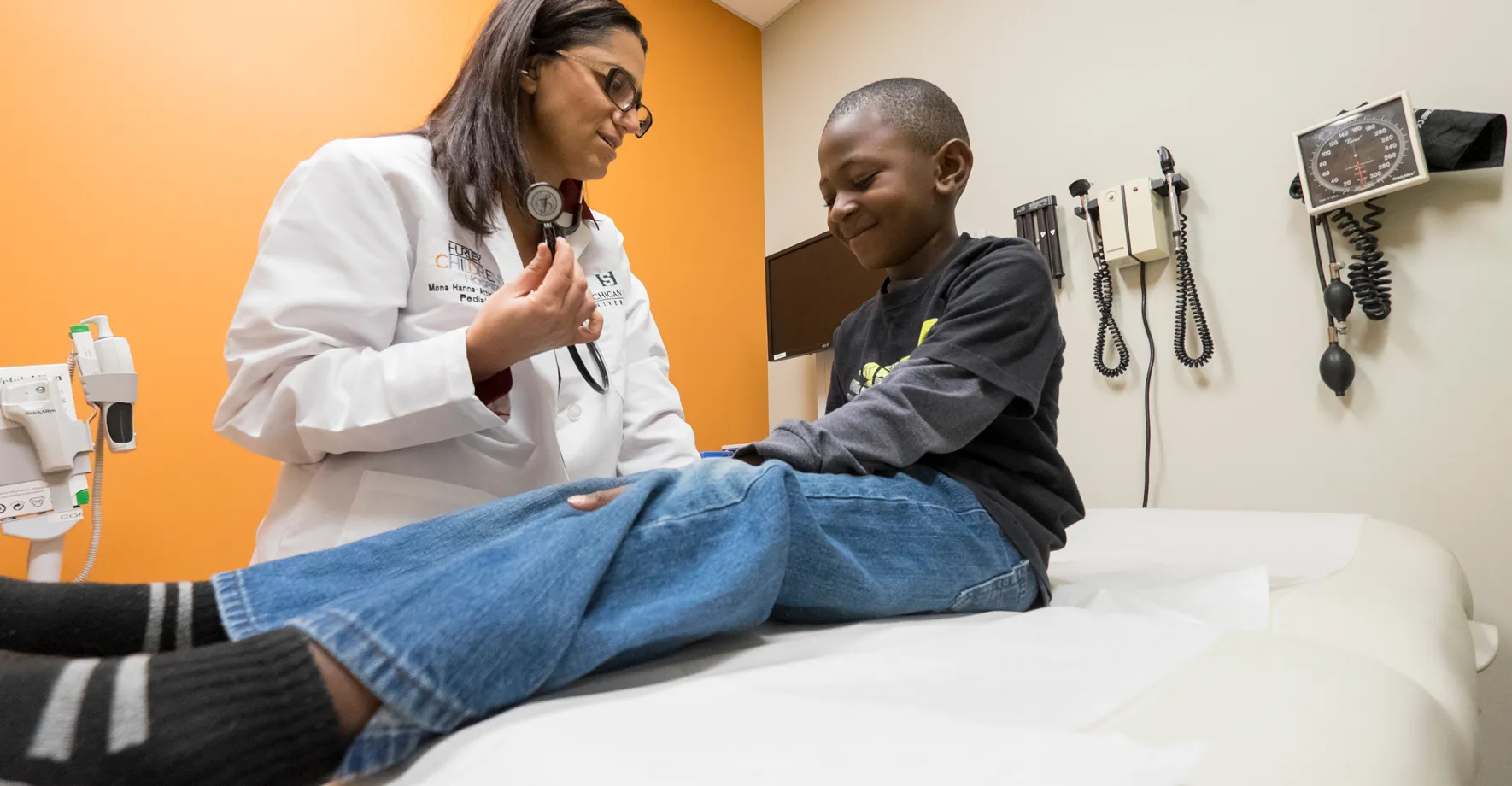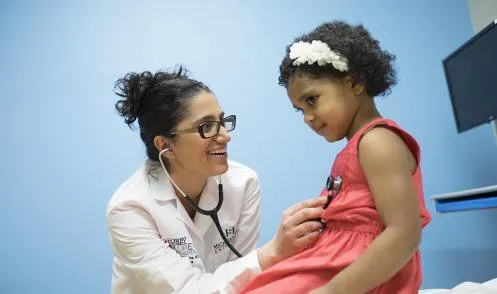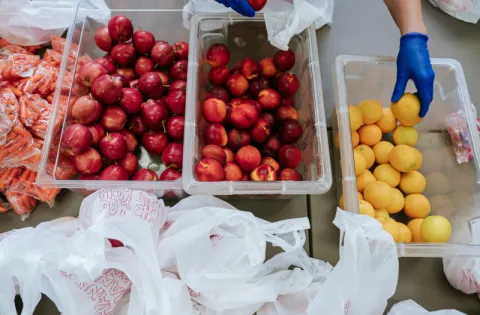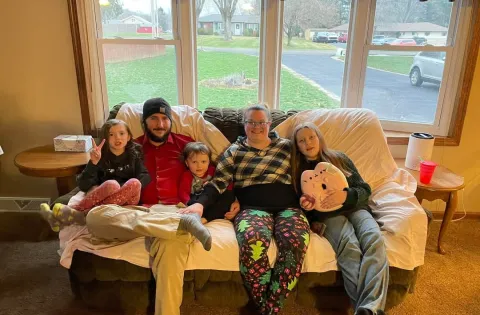No Kid Hungry’s Adrienne Carter and Diego Alonso spoke with Dr. Mona Hanna-Attisha, who brought the Flint water crisis to a national spotlight and continues the fight for justice and protection of kids in Flint, Mich. She is the director at the MSU-Hurley Pediatric Public Health Initiative and a recipient of a No Kid Hungry early childhood grant.

What is the thing that you love the most about Flint and about the kids that you serve in this community?
I first fell in love with the city over 20 years ago when I was a medical student. I fell in love with the history, the loyalty, the grit, resilience, and the people and most especially the children of Flint.
That love has never faded. It has only been strengthened over time and every day grounded in the kids. They’re the ones that keep me going even during really difficult moments and allow me to persevere.
What can you say about the Flint water crisis?
The Flint water crisis was a crisis of democracy where people's representation was taken away, where voices were not heard. It's a public health crisis where people were denied water which is a medical and public health necessity. It's a crisis of systemic inequities and longstanding racism. The root of the crisis is historic, just like all of our crises.
The decision was made to change our water source and it wasn't treated properly. The lead that was in our plumbing came out into our drinking water and ultimately into the bodies of an entire city. We had it in there for a long time and it was covered up.
Lead is a terrible neurotoxin that some of my colleagues have called the silent assassin. Without people even knowing it or feeling anything at first, it gets into the bodies of our children affecting their physical and mental development.
How can nutrition support kids who have been exposed to lead?
If we have two kids exposed to the same amount of lead, and one of them has a better nutritional status, that kid’s body will absorb less lead. That’s why we see disparities of the amount of lead of kids in cities like Detroit, Chicago and Baltimore, who are also exposed to it by the debilitating infrastructure at their homes. It’s a form of environmental racism.
Lead gets deposited into your skeletal system and it can be released in the future during, for example, rapid growth, pregnancy, poor nutrition, or stress, so it has this potential to cause toxicity all over again.
Nutrition is a forever medicine for kids who've been exposed to lead. It limits the release from the skeletal system, so it doesn't cause problems all over. We know nutrition also supports kids’ neurodevelopment which is what lead poisoning affects the most.

What challenges do Flint kids face accessing healthy food?
The challenges start in early childhood, which is such a critical window where neurons and synapses are created, and where kids form buffers for a lot of life’s adversities. We have very low breastfeeding rates and parents make formula by mixing it with water, so that's a whole other part of why this problem was a disaster.
Overall, we have limited access to full-service grocery stores with lots of liquor and dollar stores instead, and taking the bus to get groceries is a challenge for families to get what they need.
We have a 69% poverty rate in Flint which is unimaginable and unacceptable.
Can you tell us about the nutrition prescription program?
I had a lot of patients with high childhood obesity rates. I would tell patients, very naively, that they should eat things like kale and all these great fresh fruits and vegetables. My patients would just stare at me, and ask ‘where am I going to get that and how am I going to afford that.’
That prompted the move of our clinic on top of our farmers market to address some of these social determinants of health like nutrition access and transportation. Then we launched nutrition prescriptions for every child so their families can purchase fruits and veggies in the farmers market.
Food prescription programs existed for adults with chronic conditions, but not for kids as a way to prevent future health issues.
We have gotten memorable feedback from parents who said things like ‘my kid never even knew what a blueberry was,’ or ‘we've never had fresh fruits and veggies. Everything used to be frozen before this.’
What women have inspired you and your career and your life?
Writing my book, What the Eyes Don’t See, I had a chance to pay tribute to a lot of women who paved the way for me and my work and one woman who is a hero to me is Alice Hamilton.
A century ago, she was our nation's expert on lead poisoning. She took on General Motors in the 1920’s because they were trying to put lead in the gasoline. They called her hysterical and lots of sexist comments. She persevered and kept fighting to protect our most vulnerable populations. She was also the first female professor at Harvard, and with that came a lot of sexist stipulations like she couldn't attend football games, but who cares!
There are so many women like Francis Perkins the architect of the New Deal and at a very personal level my mom and my grandmother.
What would you say to young girls who are aspiring to make a difference in the lives of kids?

I am no different than you. If I can do this, you can do this. My story is about the power of believing yourself, about surrounding yourself with a village of sisters and others. I have a village of women of support at home and at work. I try to surround myself with people who are smarter than me.
The movements that are shaping our nation are being led by young people. Look at the climate change movement and the Black Lives Matter movement.
Here in Flint we have a group of kids who call themselves the Flint Youth Justice League. They are brilliant! Shortly after what happened there was a very similar water crisis in Newark, N.J, and our Flint kids were actually zooming with kids in Newark and telling them what they should do and how they should be advocates and what they should be demanding.
Any last thoughts?
The work No Kid Hungry is doing is amazing, but we shouldn’t have to do it. I hope we can get to a place where no kid anywhere is ever hungry, and that those are the things we value as a society. To achieve this, we need to do better to address these underlying issues that cause things like hunger, especially for our children.
*Photos in this post Courtesy of Michigan State University College of Human Medicine.


